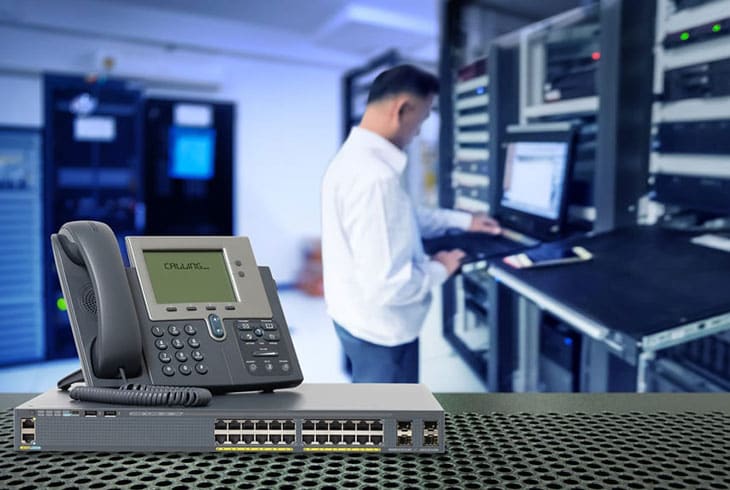What is a SIP Server
All modern businesses need a SIP server. Remarkably, this tool is invaluable to all companies using Voice over Internet Protocol (VoIP). Remember, VoIP-based communication is now a popular trend for many businesses. With this fantastic technology, you can reach anyone in the entire world via computer, phone, or any other device.
SIP (Session Initiation Protocol) is simply a signaling protocol for establishing, configuring, and terminating a session between two endpoints on a network. The creation of SIP aimed to support video and voice calling from one end to the other over Internet Protocol networks. Besides, it has excellent applications in presence information, instant messaging, or file transfers.
VoIP vs SIP: What’s The Difference?
VoIP simply means a type of phone call occurring over the internet. Therefore, it relies on data connectivity to transmit the voice packets instead of the PSTN (public switched telephone network).
On the other hand, SIP is a standard protocol that enables VoIP communication. Besides, it allows video and text to inject more flexibility and interaction into your communication.
The SIP Server
The SIP server is an integral part of the Private Branch Exchange (PBX) system as it handles all the SIP call routing and the protocol in the network. Typically, the SIP server enables the communication between two or more users using the Session Initiation Protocol, their position notwithstanding.
A SIP server is used to create, modify, as well as terminate a phone call depending on the request from other devices within the network. Its primary functions include but are not limited to dialing (call signaling), managing user authentication, and call set-up.
There are two ways to deploy a SIP proxy server – hosting within the company’s internal network or you can let a third party host it. Its hardware varies in size – it can be as tiny as a desktop PC or as massive as an enterprise-level server with dozens of hard drives and CPUs. Additionally, some cloud-based services offer hosted VoIP solutions, and they will not need you to buy or maintain the physical equipment at your business location.
How a SIP Server Works
The SIP server is practically a staging area – it transmits and terminates calls through two types of SIP proxy servers – stateful and stateless. While stateless proxy servers don’t save any information from previous sessions, the stateful proxy does.
SIP Server Benefits to a Business
The significant benefits of SIP servers include:
- Reduced bandwidth costs
- Improved call handling
- Greater mobility and more flexibility
- Increased dialing efficiency
- Low cost due to fewer phone lines
- Improved security
Better performance via load-balancing
Keep in mind; the latency is lower in SIP than in other protocols. That translates to a much lesser lag time between the time you speak and when the person on the other end of the line hears your words.
SIP protection is a must for businesses that rely on VoIP and other digital voice communications. The SIP services offer protection to the VoIP data and prevent unauthorized access. This keeps your network secure. But if you want to achieve these benefits, your first step should be implementing a SIP Proxy server. Again, ensure that you select a quality SIP service for better results.
A stateful server ensures that your VoIP system can route calls to phones effectively, a feature that streamlines communication and increases safety. When you use a stateless server, it ensures that no state-specific data is stored on your system. Therefore, all your Voice over Internet Protocol data remains entirely confidential. However, there is some initial cost you will incur when setting up stateful servers. But benefits are more significant.

